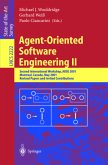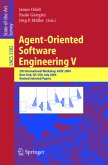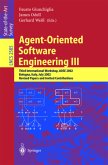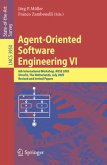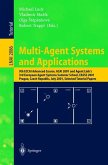Agent metaphors and technologies are increasingly adopted to harness and g- ernthecomplexityoftoday ssystems.Asaconsequence,thegrowingcomplexity of agent systems calls for models and technologies that promote system p- dictability and enable feature discovery and veri?cation. Formal methods and declarative technologies have recently attracted a growing interest as a means to address such issues. The aim of the DALT 2003 workshop was two-fold. On the one hand, we wanted to foster a discussion forum to export such techniques into the broader communityofagentresearchersandpractitioners.Ontheotherhand,wewanted to bring in the issues of real-world, complex, and possibly large-scale agent s- tem design in the perspective of formal methods and declarative technologies. Thanks to the very high quality of our program committee, we managed to put together a rich program, including three technical sessions and two panel sessions:TheUseofDeclarativeProgrammingforAgent-OrientedSoftwareEn- neering, moderated by Leon Sterling and Andrea Omicini, and Declarative and Logic-Based Technology for Agent Reasoning and Interactions, organized and moderated by Rafael Bordini and Wiebe van der Hoek, with the participation of ?ve invited panelists. This bookcontainstherevisedandextendedversionsofthe paperspresented at the workshop, as well as three invited contributions by leading researchers of the ?eld. It is composed of three parts: (i) software engineering and multi-agent system prototyping, (ii) agent reasoning, BDI logics and extensions, and (iii) social aspects of multi-agent systems.
Hinweis: Dieser Artikel kann nur an eine deutsche Lieferadresse ausgeliefert werden.
Hinweis: Dieser Artikel kann nur an eine deutsche Lieferadresse ausgeliefert werden.



